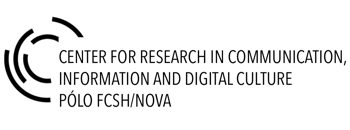CfP: Special issue TEKNOKULTURA – Communication, Innovation and Social Change on the Web | deadline:
*Coordinators: Ainara Larrondo / Irati Agirreazkuenaga (Gureiker Research Group, UPV/EHU);* *Juliana Fernandes Teixeira*
/Teknokultura/, a journal devoted to the study of technology’s impact on society, seeks submissions for Communication, Innovation and Social Change, an upcoming issue to be guest-edited by Gureiker Group (UPV/EHU) researchers Ainara Larrondo and Irati Agirreazkuenaga. Communications and journalism have always needed to respond and adapt to changes brought on by technological innovations and the social and cultural transformations that occur in their wake. This monographic issue purports to provide a contemporary, systematic overview of the ongoing transformations in communications being driven by the Web from the varying perspectives of producers, consumers and prosumers – categories that cover traditional and emergent actors ranging from media outlets and professional journalists to publicly funded institutions, social movements and organisations, citizens, bloggers and influencers. As such, it seeks to address topics such as the main factors driving present and future innovation in social communication, the tools employed, the creative and productive processes involved, the content produced, strategic challenges that must be addressed and public opinion.
Editors are open to receiving manuscripts that reflect a wide spectrum of approaches to this area of research, including, but not limited to, theoretical dissertations, reports on fieldwork, case studies, best practice codes and recommendations.
*The following topics are of particular interest:*
* Cultural policy, technological innovation and network society
* Participation, the psychosocial behaviour of active audiences and public empowerment
* Challenges involved in Web 2.0 communication for social change
* Public and private organisations’ online communication strategies
* Analyses of the offshoots and outcomes of cultural and media convergence (transmedia storytelling, multi-platform coverage, newsroom integration, etc.)
* Mobile communications and journalism
* Professional attitudes and reactions in response to the new demands and realities of online communication and journalism (multitasking, professional retraining, changing working conditions, new
relationships with audiences, etc.)
* Ethical questions and best practices related to media work in the context of the new technologies.
*Contact: ainara.larrondo@ehu.eus,* irati.agirreazkuenaga@ehu.eus
/Teknokultura/ (ISSN-e 1549-2230) covers the growing central role of technology within communication and social mobilisation contexts taking a critical view. It looks at the complex ways in which technology and new social communication media, in their role as significance systems, can restructure social, economic, political and cultural life. To do this, it offers lines of discussion on these issues through articles intended to disseminate the results of original research and innovative trials.

